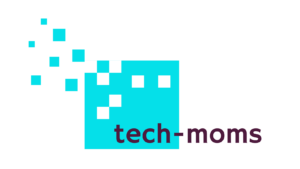Balancing work, family, and education can be quite a challenge. Many adults find it hard to commit to traditional classroom schedules due to these responsibilities. Flexible learning provides a solution, offering a way to continue education without putting life on hold. This kind of learning allows you to fit your studies around your life, rather than the other way around.
The rise of online education has opened up new possibilities for flexible learning. You can now access coursework from anywhere, at any time, making it easier to balance multiple commitments. Whether you’re working a full-time job, taking care of a family, or dealing with other life demands, flexible learning adapts to your schedule.
Moreover, competency-based programs take flexibility a step further. These programs allow students to progress by demonstrating mastery of subjects rather than spending a set amount of time in a class. This means you can move quickly through familiar material and take more time on subjects that require extra effort. By accommodating individual learning speeds and styles, competency-based programs make it easier for busy adults to achieve their educational goals.
Why Flexible Learning Is Essential for Modern Students
Flexible learning is essential for modern students because it adapts to their diverse lifestyles and responsibilities. Many adults are juggling jobs, family duties, and other commitments, making it difficult to attend traditional classes. Flexible learning allows these students to access education on their terms, fitting studies around their already busy schedules.
One key benefit of flexible learning is accessibility. Students can learn from anywhere with an internet connection, which means they can study at home, during breaks at work, or even while traveling. This convenience removes geographical barriers and makes it possible for students to pursue education no matter where they are located. Additionally, many flexible learning programs offer asynchronous coursework, allowing students to complete assignments and review materials at any time, rather than having to attend live sessions.
Another important aspect of flexible learning is the ability to personalize the education experience. Students can progress at their own pace, spending more time on challenging subjects and moving quickly through areas they find easier. This personalized approach ensures that learning is effective and efficient. For busy adults, this means they can achieve their educational goals without sacrificing other important aspects of their lives.
Time Management Tips for Juggling Work, Life, and Studies
Balancing work, life, and studies can be a daunting task, but effective time management can make it much more manageable. Here are some useful tips to help you juggle these responsibilities:
1. Create a Schedule: Develop a weekly schedule that includes dedicated study time. Use a planner or digital calendar to block out specific times for coursework, work commitments, and family activities. Stick to this schedule as closely as possible to create a routine.
2. Prioritize Tasks: Make a list of your tasks and prioritize them based on deadlines and importance. Focus on completing high-priority tasks first. This will ensure that you tackle urgent assignments and avoid last-minute stress.
3. Set Realistic Goals: Break your larger goals into smaller, manageable tasks. Setting realistic and achievable goals can help you stay motivated and make steady progress. Completing small tasks regularly builds momentum and confidence.
4. Use Breaks Wisely: Take short breaks during study sessions to rest and recharge. Use these breaks to refresh your mind, but avoid getting sidetracked. Short breaks can improve focus and productivity when you return to your tasks.
5. Limit Distractions: Identify and minimize distractions during your study time. Find a quiet, dedicated study space and inform family members or roommates about your study schedule. Turn off notifications on your devices to stay focused.
By implementing these tips, you can manage your time more effectively and create a balanced routine that accommodates work, life, and studies. Staying organized and disciplined helps you achieve your educational goals without feeling overwhelmed.
The Role of Online Tools in Enhancing Flexible Learning
Online tools are crucial for enhancing flexible learning, making education more accessible and effective. These tools provide various resources and capabilities that facilitate learning on your own terms. Here are some key online tools that improve the flexible learning experience:
1. Learning Management Systems (LMS): Platforms like Moodle, Canvas, and Blackboard allow you to access course materials, submit assignments, and communicate with instructors and classmates. These systems are user-friendly and centralize all your coursework in one place.
2. Video Conferencing: Tools such as Zoom, Google Meet, and Microsoft Teams enable live interaction with instructors and peers. You can attend virtual classes, participate in discussions, and receive real-time feedback, all from the comfort of your home.
3. Educational Apps: Apps like Quizlet, Khan Academy, and Duolingo offer interactive learning experiences that can complement your studies. These apps provide quizzes, flashcards, and lessons that you can access on your smartphone, allowing you to learn on the go.
4. Cloud Storage: Services like Google Drive, Dropbox, and OneDrive make it easy to store and share your academic files. You can access your documents from any device, ensuring that your important materials are always within reach.
5. Online Libraries and Databases: Access to resources like JSTOR, Google Scholar, and university library portals allows you to conduct research and find scholarly articles and books online. These databases provide a wealth of information for assignments and projects.
Using these online tools effectively can greatly enhance your learning experience. They offer the flexibility to study at your own pace and access materials from anywhere, making it easier to balance education with other commitments.
Real-Life Benefits of Competency-Based Programs for Busy Adults
Competency-based programs offer significant benefits for busy adults looking to further their education. These programs focus on assessing your skills and knowledge, allowing you to move through the material at your own pace. Here are some real-life benefits of competency-based programs:
1. Speed and Efficiency: One of the most appealing aspects of competency-based programs is the ability to test out of courses you are already proficient in. This means you can complete your degree more quickly, bypassing material you already know and focusing on new subjects. This is ideal for adults who want to finish their degree fast and enter or advance in the job market sooner.
2. Flexibility in Learning: Competency-based programs are designed to fit into busy schedules. You can study at times that are most convenient for you, whether early in the morning, late at night, or during lunch breaks. This flexibility makes it possible to balance education with work, family, and other responsibilities.
3. Cost-Effectiveness: These programs are often more affordable than traditional degree programs. Since you can complete the coursework at your own pace, you might spend less time enrolled overall, reducing tuition costs. Monthly payment plans also help in managing finances without the burden of large lump-sum payments.
4. Personalized Education: Competency-based programs tailor the learning experience to individual needs. You can spend more time on challenging areas while moving quickly through easier topics. This personalized approach enhances understanding and retention, making education more effective.
5. Immediate Application: The skills and knowledge gained in competency-based programs can often be applied immediately to your current job. This bridges the gap between education and practice, providing tangible benefits to your career.
Conclusion
Flexible learning and competency-based programs are transformative for busy adults seeking to further their education. These approaches offer the adaptability needed to fit education into an already full life, providing the ability to balance work, family, and studies effectively. By leveraging online tools and personalized learning pathways, you can achieve your educational goals efficiently and affordably.
At Newlane University, we understand the unique challenges that adult learners face. Our programs are designed to be flexible, affordable, and tailored to your individual needs. Whether you’re looking to complete unfinished college credits or start a new educational journey through self-driven learning, we are here to support you every step of the way. Visit Newlane University today and discover how we can help you achieve your academic dreams without putting your life on hold.





